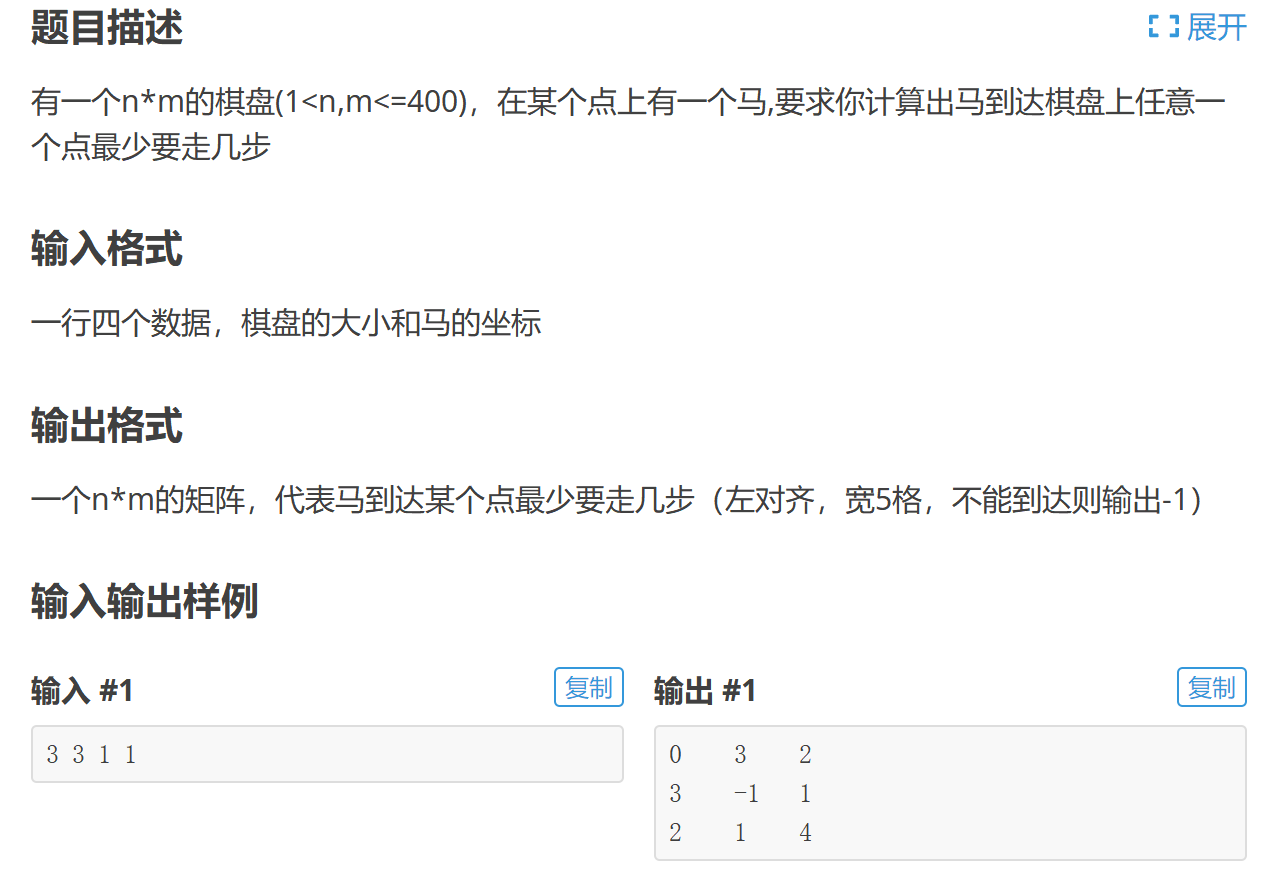

#include <cstdio>
#include <queue>
#include <utility>//pair
using namespace std;
typedef pair<int, int> pii;
const int N = 405;
int d[N][N];
int main() {
int n, m, a, b;
scanf("%d%d%d%d", &n, &m, &a, &b);
a--, b--;
for (int i = 0; i < n; ++i) {
for (int j = 0; j < m; ++j) {
d[i][j] = -1;
}
}
d[a][b] = 0;
queue<pii> q;
q.push(pii(a, b));
while (!q.empty()) {
pii p = q.front();//包括下面一行,这两行是bfs的核心
q.pop();//后弹出,因为之前只是取出,并没有弹出
int x = p.first, y = p.second;
int dx[] = {-2, -1, 1, 2, 2, 1, -1, -2};
int dy[] = {1, 2, 2, 1, -1, -2, -2, -1};
for (int i = 0; i < 8; ++i) {
int nx = x + dx[i], ny = y + dy[i];
if (0 <= nx && nx < n && 0 <= ny && ny < m && d[nx][ny] == -1) {
d[nx][ny] = d[x][y] + 1;
q.push(pii(nx, ny));//把这个点衍生的所有点推入队列
}
}
}
for (int i = 0; i < n; ++i) {
for (int j = 0; j < m; ++j) {
printf("%-5d", d[i][j]);
}
puts("");
}
}